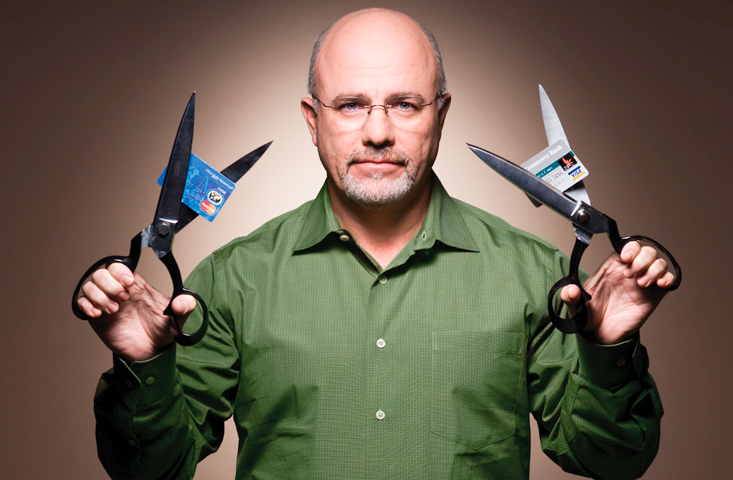Football’s even better when its combatants aren’t merely injuring themselves, but freezing themselves for our entertainment. NFL, please play a game on a framework of balsa wood planks balanced on a volcanic fissure vent. These overpaid jocks have it too easy.
Speaking of having it too easy, we had plenty of submissions to select from in this week’s CoW. Forthwith:
Every week we learn something from Jason at Hull Financial Planning. This week, we learned that we’re grossly antisocial and have a paucity of “strong ties” in our modest circle. We also learned that, counterintuitively, the “weak ties” will likely benefit you more, professionally speaking.
A guest post from Anita at Critical Financial. Anita’s accompanying bio says she “enjoys spending time with family,” and if someone deems that an interesting thing to say about herself, then we aren’t expecting much from the post itself. Seriously, what is the point of saying you enjoy spending time with family? Why not say “Anita has 5 fingers on each hand, and sates her hunger by eating food”?
Yeah, we were right. Here’s the opening half-paragraph:
Saving for tomorrow begins today. You may not be financially fit for your retirement if you do not invest your money now. Investing your money is one of the smartest ways to save for retirement
Which conveys every bit as much worthwhile information as the news that Anita enjoys spending time with family. What the hell does that even mean? “Investing your money is one of the smartest ways to save for retirement”? As opposed to what? Aren’t investing and saving synonyms? God, what a pile of dreck this post is:
Investing only in one company is like putting all of your eggs in one basket.
Yes, and investing in 7 companies is like putting all of your eggs in 7 baskets. This is called metaphor. Critical Financial, you’re officially on notice. Step it up or we’ll just forward your submissions to the Yakezie Carnival. Don’t worry, they’ll run anything.
Palate cleansing courtesy of PKamp3 at DQYDJ.net, the sorbet course to Critical Financial’s virgin boy egg. All too often, personal finance authorities focus on elimination of debt to the exclusion of everything else. People, being stupid by their nature, see this as reasonable advice. After all, owing money is psychologically painful and implies that you’re not as rich as you otherwise might be. What this outlook fails to account for is that you almost certainly need to borrow money to build wealth. Oh, we’re sorry, did you pay cash for your house? Never mind, then. Also, don’t conflate consumer debt with debt. It’s astonishing how many people will embrace Dave Ramsey’s mathematically unsound “debt snowball” method, yet can’t figure out that, as PKamp3 puts it,
[Y]our 401(k) match should almost definitely be prioritized over that 1.49% car loan.
Now for some tasty hákarl, from Jon Haver at Pay My Student Loans. Don’t want to burden yourself with debt obligations you’ll never be able to pay back once your useless theory of media degree is complete? Then burden the taxpayers instead! Jon has all the answers. Fill out the Free Application For Student Aid and begin adulthood with the entitlement mentality that any good parent should have beaten out of you years earlier.
Justin at Root of Good introduces the Luck Making Machine. He must be doing something right, because he retired early and seems to be leading a rich and rewarding life. If you read this post, get to the end, and fail to see the satire therein, we have a Luck Making Machine of our own we’d love to sell you.
Harry Campbell at Your PF Pro has now completely detached himself from PF, which we think stands for personal finance, and is offering posts on bike maintenance.
Josh Rodriguez at CNA Finance managed to take 1063 words to say the following: Click on this link to Prosper.com, which does peer-to-peer lending. That’s somehow comparable to investing in real companies on a real stock exchange. Also, click this link to Charles Schwab’s OptionsXpress, even though I assumed you didn’t know a thing about investing when I opened the post and now I think you should buy derivatives.
Then there’s Andrew at 101 Centavos, who a) writes beautifully, 2) chooses relevant topics and iii) has yet to waste our time with any of his posts. (Of course, it’s only a blogger like that who’d choose to take a 6-month hiatus. Welcome back, Andrew.) This week he analyzes the investment potential of Limoneira Company, which sounds Portuguese but is based in California. They grow oranges, lemons and avocados. Andrew’s analysis of Google Finance’s writeup on Limoneira is worth the price of the post just on its own.
Our Stacking Benjamins podcast co-panelist, Paula Pant at Afford Anything, has uncharitable things to say to people who insist on obsessing over saving pennies. They don’t add up. Stop pretending that they do. And don’t waste your time [contemplating] creating a budget. We added the word “contemplating” because if you haven’t made it a habit of budgeting, you aren’t going to start now. The best you can do is resolve to do it, and who are we kidding? Do like Paula says:
- Find an additional income source
- Put all that income toward savings.
Your savings rate will increase dramatically, because you’re increasing the numerator and denominator by the same amount. Again, personal finance is insanely simple. So simple that people who are determined to miss the point will do so without justification.
You all have Bank of Scotland accounts, right? Good. “Steve Patterson” reviews the bank’s Android app at Fast Swings, one of the few sites with an uglier interface than ours. BONUS: This awful blog post contains the same main image twice, and the same opening paragraph twice, saving you the trouble of going back and rereading it.
Investing in penny stocks? Sure, why not? Wouldn’t be the first terrible idea to be featured in the CoW. Someone calling herself Mayor MT at Messy Money scribbled out a post in two contradictory parts. In Part I, she explains why penny stocks are a bad idea. Okay, fine. In Part II, she asks you to suspend whatever residual disbelief you might have from Part I and tells you how to obtain information about penny stock companies. Post contains this great if unoriginal line:
My standard response when asked about penny stocks is this: “Penny stocks are speculative investments and people should only invest the amount of money they would be comfortable losing in a casino.”
Why would you be comfortable losing any amount of money in a casino? Or anywhere else, for that matter?
4 more of these? We’ll never make it. From Jack at E-Money Log, how to shop at a thrift store. It seems that the method goes beyond finding something you like and seeing if you also like the price:
These second hand stores offer clothes to fit different sizes
Ha! And all this time you thought that thrift stores sold pants in 36 medium only. Also,
Thrift shops have a collection of books
For who?
for the book lover
Thanks for that. The best part about this [running out of adjectives here. Thesaurus.com, help us out] banal post is that it comes with 18 share icons. You can avail the world of this post via Digg, MySpace, Reddit, something called Sphinn, or something else called Posterous.
You’ve made it this far, and we thank you for that. Meanwhile, Jason at Hull Financial Planning is grateful that we no longer wait until the end of the CoW to feature his genius. Mark Wang at The Money Mail says you need renter’s insurance. We’d say you should get out of Manhattan and buy a house, but what do we know? We’d also say this post is verbose, but it’s pithy compared to the one by the peer-to-peer lending guy. (As you can tell, we’re so jaded at this point that we can’t be bothered to spend 3 seconds scrolling up to confirm his name.)
2 more and we’re done, swear to God. Easy Extra Dollar is another CoW rookie this week, with a post titled “Avoiding Scam Online Job” (sic). According to the post’s author, one way to avoid scam online job is to:
be weary (sic) of job ads that contain lots of punctuation, spelling, or grammar mistakes
We’re not weary of that, nor of irony, but we are pretty weary of these loathsome submissions. Finally, from Christopher at This, That and the MBA, a post on how to bank online. For our readers who were encased in carbonite in 1995 and are thawing out only now. It’s a paid post for a British bank – a subsidiary of the Bank of Scotland, no less! Scotland: the country that combined the worst stereotypes of Russians and Jews. (Russians are cheap and Jews love to drink. Oh, you thought we meant the opposite? Now who’s the bigot?)
Check us out on Investopedia, where we’re forced to keep it far more polite than we do here. ‘Til next time.




